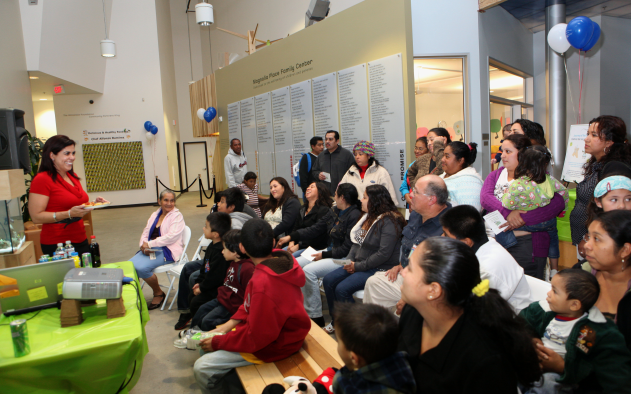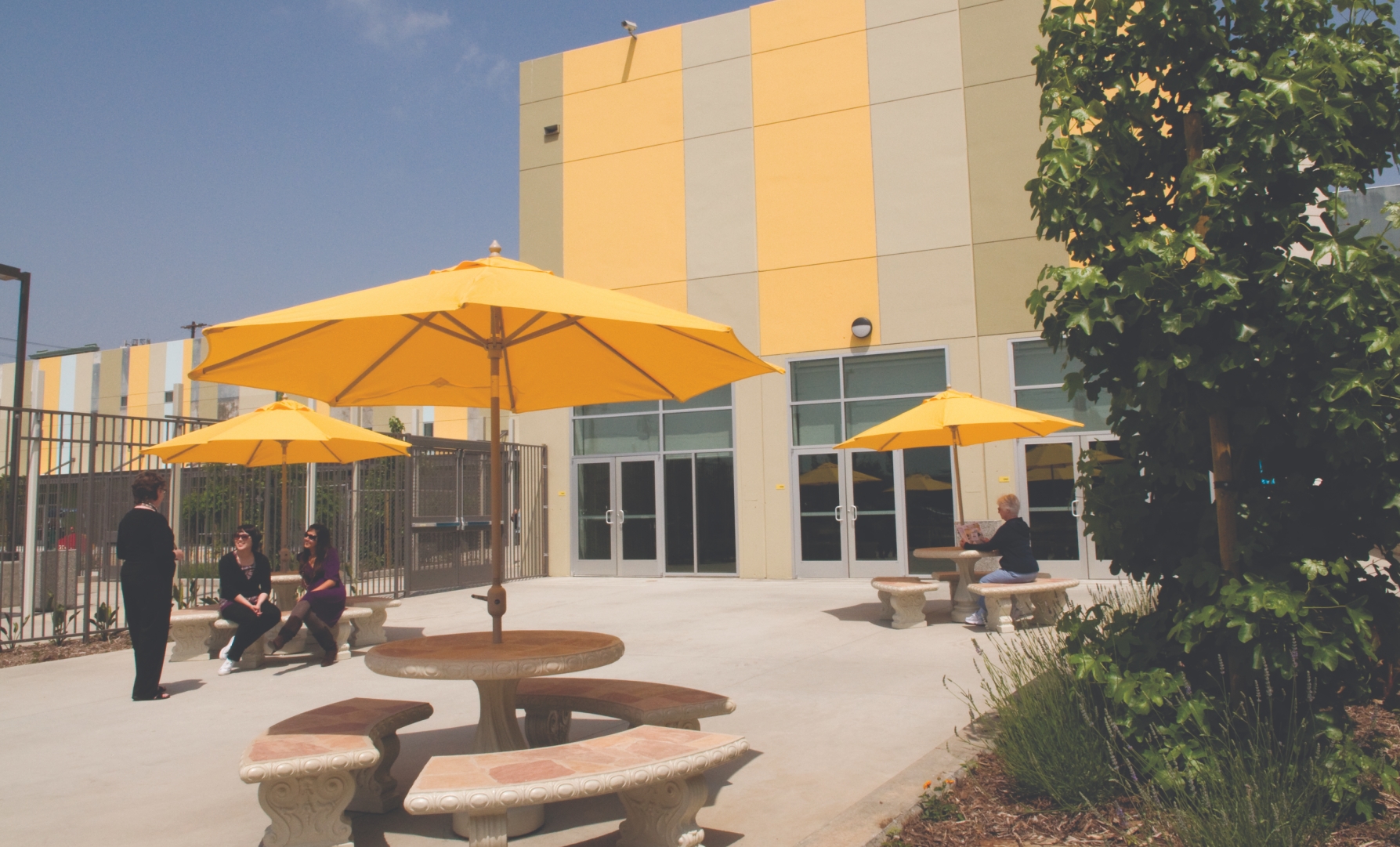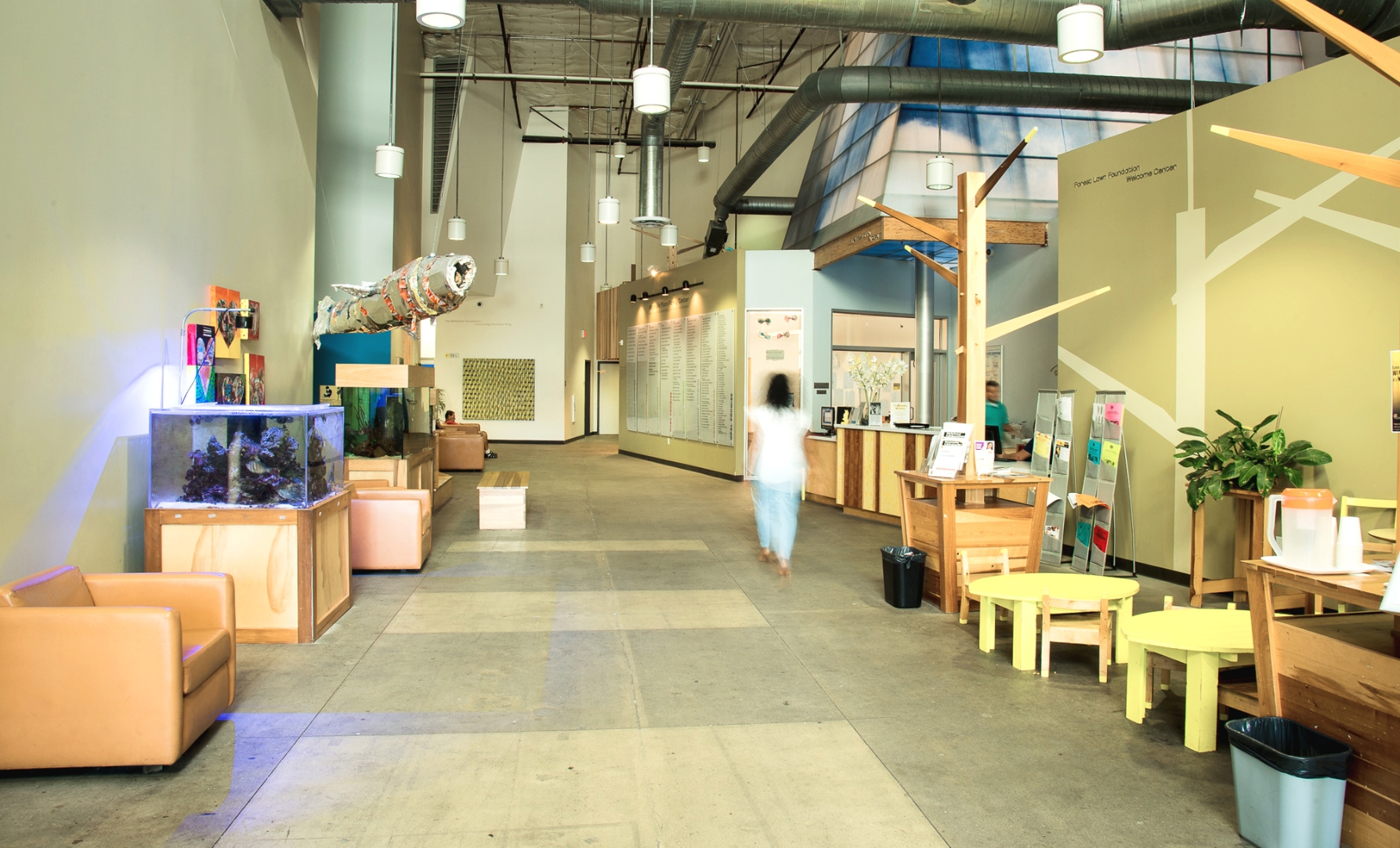Children's Bureau (now All For Kids) was founded in 1904 by Mrs. E.K. Foster, a Los Angeles community leader, and a group of volunteers who shared a concern for the plight of vulnerable children. Successfully they advocated for legislation to protect these children. Today, All For Kids continues to be a trusted, innovative leader in child well-being.
Children’s Bureau of Southern California announced that they will have a new name, All For Kids. This name change embraces how partners, families, and communities – work together to create a world where every child is safe to grow.
In October 2023, Children’s Bureau held a grand opening celebration for its newest family resource center in Palmdale, CA. More than 300 guests attended including dignitaries; Children’s Bureau directors, trustees, and employees; and community partners along with parents and their children. This is the first owned building for the agency in the Antelope Valley.
Children’s Bureau celebrated the groundbreaking of the newest Family Resource Center which will be located in Palmdale with members of the community, partner organizations, political representatives, staff, and volunteer leaders. The facility is expected to open in 2023.
The Association of Talent Development selected Children’s Bureau University, a virtual learning platform for Children’s Bureau employees, to receive the 2021 BEST award as one of the top internal universities. Children’s Bureau received this recognition for a second year in 2022.
The agency’s board of directors approves a five-year strategic plan that focuses on three priorities:
•Grow prevention programs, services and place-based community initiatives and partnerships
•Double private giving to expand the agency’s child maltreatment prevention strategies
•Advocate for public funding and policies that support prevention
Children’s Bureau successfully completed the 2020 National Trauma Informed, Resilience Oriented Care Learning Community.
Received “100 Champions for Children” Award by Child Welfare League of America for creating and advancing standards of practice, advocacy and information sharing to enhance the well-being of children and families.
In December 2017, Children’s Bureau’s board of directors proudly announced the selection of Ronald E. Brown, Ph.D., as its new President & CEO effective January 2, 2018. Following an extensive nationwide search, Ron, who served as Children’s Bureau’s Chief Program Officer for 17 years, succeeded Alex Morales who retired after 30 years of service to the organization.
Children’s Bureau’s Board of Directors approves a five-year strategic plan with the following priorities:
•Continue investment in prevention
•Launch advocacy program to promote prevention and harness strength of the board as advocates
•Build evidence of MCI impact and share MCI learning nationally to support its spread
•Enhance internal organizational excellence.
The Board prepares for transition of new CEO leadership as Alex Morales prepares to retire after 30 years of service in 2018.
Children’s Bureau receives its first national government grant for a father involvement program called Dads Matter, a father engagement program in Orange County.
In celebration of its 25th anniversary, The Annenberg Foundation recognizes Children’s Bureau’s President & CEO Alex Morales as one of 25 visionary leaders.

Children’s Bureau receives its first national foundation grant from the Doris Duke Foundation to fund the Magnolia Community Initiative.
The Magnolia Community Initiative is launched using the Magnolia Place Family Center as its primary hub. Forty non-profit, government, and faith-based community organizations come together to form a network to advance the comprehensive bold initiative. During these years, the network grows to 75 organizations and begins its ambitious work. The Board of Directors also votes to launch an advocacy initiative to promote investment in the early years and the Magnolia Community Initiative’s approach.
The Board of Directors and Board of Trustees successfully raise $22 million for its capital campaign. These resources are used to purchase and renovate a three-acre site as the home of the agency’s new headquarters and Magnolia Place Family Center. The Center is a primary hub for the transformation of the local neighborhood. In 2008, the new Center opens and is dedicated to serve the community.
The Board of Directors adopts a bold strategic plan. The plan calls for the creation of a family center and development of an innovative neighborhood strategy to help all children and youth be successful, especially the youngest ones. This effort will serve as national model. The four important and comprehensive outcomes are health, economic stability, nurturing parenting, and kindergarten readiness.
In the treatment arena, the agency transitions from group-home care to the Family Visitation and Parent Learning Center which becomes an integral part of Los Angeles County’s monitored visitation program for children in foster care and their birth parents. The agency also expands its mental health therapy and counseling for kids showing signs of difficulty in school or home life.
Children’s Bureau identifies parent education and community support systems as two vital strategies in the arsenal to prevent child abuse and initiates a focus such that 50% of its program efforts are with newborns to three-year-olds. The agency launches a dynamic parent education program called NuParent, establishes Family Resource Centers (FRCs) in five of its 13 community sites and is awarded a state grant to form the Family Resource Center Technical Training and Support Team which acts as a training model for other organizations wishing to open FRCs of their own.


Children’s Bureau launches an innovative prevention and family development program to address the problem of child abuse through in-home counseling and parent education classes. To support this program, the agency develops a nationally recognized evaluation tool to help counselors objectively assess family functioning and plan treatment. Children’s Bureau’s work in prevention and evaluating family functioning attracts the interest of professional researchers, and with funding provided by a major foundation, research on home-based prevention services is undertaken. Children’s Bureau’s successes in the critical battle to prevent child abuse result in an invitation to locate services in Orange County.
Children’s Bureau implements a program of therapeutic group-home care for abused children who cannot be helped through foster care.
Unadoptable children become the focus of Children’s Bureau’s pilot program to provide therapeutic foster care treatment and adoption services for children with special needs.
Children’s Bureau begins to offer day care services as women enter the workforce to respond to emerging social conditions.
With World War II, Children’s Bureau expands to meet changing social needs by initiating adoption services and finding homes for refugee children and war orphans.
Children’s Bureau opens a shelter for homeless and abused children. The agency also plays a key role in establishing the USC School of Social Work.
Children’s Bureau is a vital partner in starting the Community Chest – now the United Way. To ensure quality service for children, Children’s Bureau begins to recruit and train foster parents and establishes its own training program for social workers. Children’s Bureau becomes one of the first professional foster care agencies in the nation.
Moved by the plight of vulnerable children, Mrs. E.K. Foster, a Los Angeles community leader, forms a volunteer group which successfully advocates for legislation to protect children.